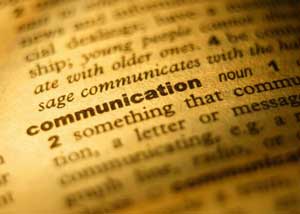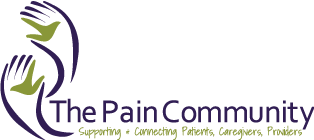 Words are the building blocks of language. We use words to communicate our thoughts, ideas, beliefs and emotions. Words can have specific meaning or a variety of meanings depending how they are used in conversation. Words can convey a clear message or a confusing message. Some words are gentle and comforting while others are harsh and distressing to hear. It is HOW we use words that matters most.
Words are the building blocks of language. We use words to communicate our thoughts, ideas, beliefs and emotions. Words can have specific meaning or a variety of meanings depending how they are used in conversation. Words can convey a clear message or a confusing message. Some words are gentle and comforting while others are harsh and distressing to hear. It is HOW we use words that matters most.
Words can explain, define, label, clarify or confuse. Words can influence (positively or negatively) our beliefs about us and our beliefs about others. Words can influence how we think; how we think can influence how we feel.
So what does this have to do with pain management, you might ask? Lots! First our self-talk and the words that we use can either build us up or tear us down. I know, I was the worst offender in this area. The words I chose to speak to myself were harsh, condemning and not nice at all. I would never use those same words to talk to friends or family but I was using them on myself. Words like lazy, worthless, failure, you’re not enough, you’ll never succeed at that…these and so many others; no wonder I was feeling less than everyone else, feeling like a failure with no motivation to change. Why change? My self-talk told me it was not even worth starting so why bother? At one of my lowest points I decided to take an online course which changed my life…in fact the course was called “Change Your Life In 30 Days” with Rhonda Britten famous TV Life coach of the Starting Over TV reality show. I learned that words carry energy and that I need to choose my words carefully and wisely. Slowly over 30 days I stopped the negative self-talk and replaced it with positive thoughts. I learned how to be gentle with myself and how to practice self-compassion. In fact, I came up with a little affirmation that I say even today when a negative thought pops up…”I forgive myself for having that thought; I choose love instead”. My overall vocabulary changed and with it my attitude and motivation.
Vocabulary matters! Think of words that people use to describe people in pain. Words that make you cringe when you read the latest news article about prescription drug abuse. Words like – narcotic, addict, doctor shopper, pain victim and pain killer- are coated heavily with negativity and prejudice. Words that ought to be used are opioid, substance use disorder, pain relief seeker, person living with pain or pain medication.
For example, the word narcotic is a legal term used to denote illegal drugs such as heroin and cocaine. When used in that context, it is appropriate and clearly states what the issue is at hand. When used in the health care system, it unjustly labels individuals who need to take a class of medication called opioid analgesics. The term “addict” is derogatory in nature, whether referring to someone who is physically dependant on opioids treating their pain as well as when referring to someone with a substance use disorder. Addict inappropriately labels someone to a lower station in life as if they are of lower value as a human being.
Even the word DRUG can carry with it a negative overtone—drug as in street drugs? People with pain take medications not DRUGS. What about if you find yourself calling your Oxycodone “OXY’s”? Oxycodone is the medication and OXY, is a street name. How about choosing to call Percocet (oxycodone with Acetaminophen) “PERCS” which is again, a street name? How does that label you and others who use these medications for the legitimate treatment of pain? How do you feel when you hear those words used when directed at you?
How do the words “drug seeking” strike you? Wouldn’t you rather hear relief seeking? How about being called fat or obese compared with over-weight? How about crippled vs disabled, impaired or handicapped? I looked up the word disabled – other words with similar meanings are incapacitated, inactivated, deactivated, Immobilized, hindered, or rendered useless. Words are powerful in defining ourselves. Think about how you feel when you read “pain sufferer” vs. a person experiencing or living with pain? One is powerless and helpless while the other is empowering and uplifting. After all, not all people living with pain are pain sufferers especially when they have secured an effective pain treatment plan. Many thrive and show their strength in character every single day. What about the use of the word “victim” compared to survivor—one shows helplessness and the other strength? Which would you prefer?
Words are energy. A Japanese researcher, Dr. Masaru Emoto, who wrote Hidden Messages In Water, says that water and its crystals are influenced by the environment they are in. He has shown through his unique photographic process how certain words shaped beautifully awesome crystals while other words produced ugly and unorganized crystals. Words like “I love you. You are beautiful” form gorgeous well organized crystals while words like “I hate you. You are ugly” form distressing unorganized forms that make you turn away. We are composed of 70% water so what do words do to our water?
Another aspect to consider is that your brain believes what you tell it…and makes no distinction between whether it is a true statement or not. So what words do you use to talk to yourself and others?
Choose wisely. I choose love, gentleness, compassion and patience.

Thank you Petmom!!!
Thank you Dionetta. I choose wisdom and generosity of spirit which you have shown writing this important message and sharing your thoughtful words.